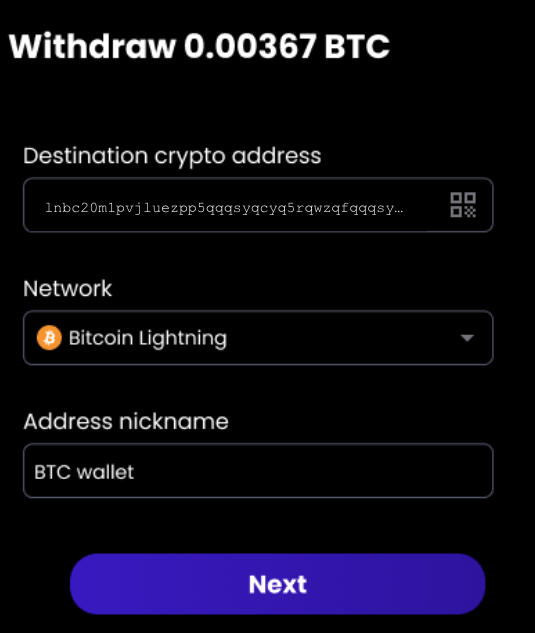Release Details
Release Date: June 7th, 2024
Release Type
Informational – Optional action from platforms
Summary
Zero Hash has created a new endpoint: POST /liquidity/rfq. Its fundamental purpose is identical to the existing GET /liquidity/rfq endpoint, however the POST variation allows the submission of fees. Platforms should use the same execution endpoint, POST /liquidity/execute, to execute on the quotes requested via POST /liquidity/rfq.
It's worth calling out this endpoint has 3 additional features compared to its GET counterpart:
- Custom Spreads: A platform that is configured to do so can specify the spread on each individual order via the
spreadparameter - Transaction Fees: A platform that is configured to do so can specify fees on each individual order via the
feesobject - Per-order quote expiries: A platform can specify the quote length of the order. Acceptable values are:
- 5 seconds:
5s - 30 seconds:
30s - 1 minute:
1m - 5 minutes:
5m - 15 minutes:
15m
- 5 seconds:
Action Required
POST /liquidity/rfqis immediately available for all platforms that are configured to use our liquidity endpoints.- Your platform must be configured by a Zero Hash employee to use custom spreads and fees, so get in touch with your rep if interested in these features.
Endpoints Impacted
POST /liquidity/rfq
Example Request
- Platform (PLAT01) requests a quote on behalf of its customer (CUST01):
POST /liquidity/rfq
{
"side": "buy",
"participant_code": "CUST01",
"underlying": "ETH",
"quoted_currency": "USD",
"total": "20",
"spread": "200",
"fees": [
{
"amount": "2.50",
"name": "fee_1"
}
]
}
- Zero Hash responds:
{
"message": {
"request_id": "9e910f82-4d23-410f-bebd-a3e6e9d93abb",
"participant_code": "PLAT01",
"quoted_currency": "USD",
"side": "buy",
"quantity": "0.00451975",
"price": "3871.8955694452126777",
"quote_id": "9b31abce-6427-45a0-9086-d861a11cdaa7",
"expire_ts": 1717780227909,
"account_group": "00SCXM",
"account_label": "general",
"obo_participant": {
"participant_code": "CUST01",
"account_group": "PLAT01",
"account_label": "general"
},
"total_notional": "20",
"underlying": "ETH",
"asset_cost_notional": "17.5",
"spread_notional": "0.35",
"spread_bps": "200",
"fees": [
{
"name": "fee_1",
"amount": "2.50"
}
]
}
}
- Platform executes the quote:
{
"message": {
"request_id": "94cfc7fb-162e-4a83-beac-cc8861aaf353",
"quote": {
"request_id": "9e910f82-4d23-410f-bebd-a3e6e9d93abb",
"participant_code": "PLAT01",
"quoted_currency": "USD",
"side": "buy",
"quantity": "0.00451975",
"price": "3871.8955694452126777",
"quote_id": "9b31abce-6427-45a0-9086-d861a11cdaa7",
"expire_ts": 1717780227909,
"account_group": "00SCXM",
"account_label": "general",
"obo_participant": {
"participant_code": "CUST01",
"account_group": "PLAT01",
"account_label": "general"
},
"total_notional": "20",
"underlying": "ETH",
"asset_cost_notional": "17.5",
"spread_notional": "0.35",
"spread_bps": "200",
"fees": [
{
"name": "fee_1",
"amount": "2.50"
}
],
"transaction_timestamp": 1717780227734
},
"trade_id": "9d7fe862-e4a0-4a2e-8d66-26f8b70e3c59",
"status": "Completed",
"trade_ids_list": [
"9d7fe862-e4a0-4a2e-8d66-26f8b70e3c59"
]
}
}

